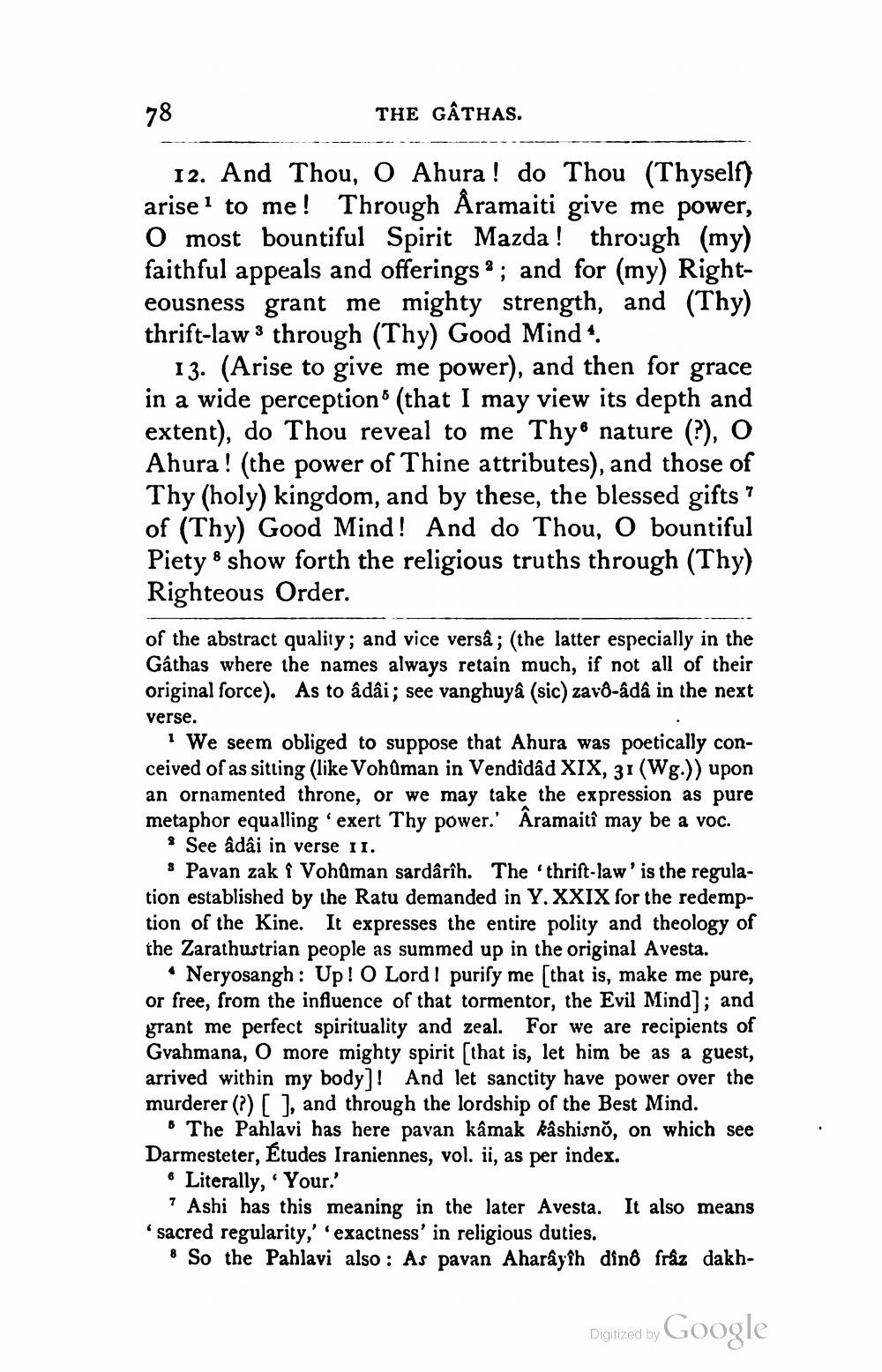________________
78
THE GÂTHAS.
12. And Thou, O Ahura! do Thou (Thyself) arisel to me! Through Åramaiti give me power, O most bountiful Spirit Mazda! through (my) faithful appeals and offerings ? ; and for (my) Righteousness grant me mighty strength, and (Thy) thrift-laws through (Thy) Good Mind.
13. (Arise to give me power), and then for grace in a wide perception' (that I may view its depth and extent), do Thou reveal to me Thye nature (?), O Ahura! (the power of Thine attributes), and those of Thy (holy) kingdom, and by these, the blessed gifts ? of (Thy) Good Mind! And do Thou, O bountiful Piety 8 show forth the religious truths through (Thy) Righteous Order.
of the abstract quality; and vice versa; (the latter especially in the Gathas where the names always retain much, if not all of their original force). As to âdâi; see vanghuyà (sic) zavo-âdâ in the next verse.
1 We seem obliged to suppose that Ahura was poetically conceived of as sitting (like Vohuman in Vendidad XIX, 31 (Wg.) upon an ornamented throne, or we may take the expression as pure metaphor equalling 'exert Thy power.' Aramaitî may be a voc.
* See âdâi in verse 11.
8 Pavan zak i Vohûman sardârîh. The 'thrift-law' is the regulation established by the Ratu demanded in Y. XXIX for the redemption of the Kine. It expresses the entire polity and theology of the Zarathustrian people as summed up in the original Avesta.
Neryosangh : Up! O Lord! purify me (that is, make me pure, or free, from the influence of that tormentor, the Evil Mind); and grant me perfect spirituality and zeal. For we are recipients of Gvahmana, O more mighty spirit (that is, let him be as a guest, arrived within my body! And let sanctity have power over the murderer () ), and through the lordship of the Best Mind.
o The Pahlavi has here pavan kamak kâshisno, on which see Darmesteter, Etudes Iraniennes, vol. ii, as per index.
• Literally, 'Your.'
? Ashi has this meaning in the later Avesta. It also means sacred regularity,' exactness' in religious duties. 8 So the Pahlavi also : As pavan Aharâyîh dinð fråz dakh
Digitized by
Digitized by Google




